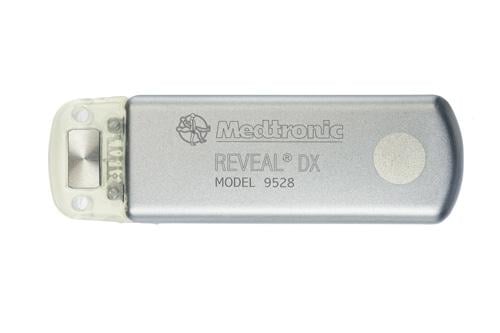
March 29, 2012 – Results of the double-blind, randomized study ISSUE-3 found patients suffering from fainting due to a neurocardiogenic syncope had fewer fainting occurrences when treated with a pacemaker. The results, which found a statistically and clinically significant 57 percent relative reduction of fainting recurrence in patients at two years, were presented this week in a late-breaking clinical trial session at the American College of Cardiology (ACC) Annual Scientific Session in Chicago.
In the study, patients at high risk for syncope recurrence (known as asystolic neurally-mediated syncope or NMS) were identified through the use of Medtronic’s Reveal family of implantable cardiac monitors (ICM), allowing physicians to determine which patients could benefit from a pacemaker implant.
“This study adds to the strength of clinical evidence affirming the effectiveness of pacemakers in reducing the recurrence of asystolic syncope, allowing us to determine which patients may benefit best from pacing,” said Michele Brignole, M.D., Ospedali del Tigullio in Lavagna, Italy and the principal investigator of ISSUE-3 (International Study onSyncope of Uncertain Etiology 3). “Based on these compelling results, the ISSUE investigators are hopeful that the clinical implications of this study will be taken into account when drafting updates to the current guidelines for these patients.”
While a previous observational study, ISSUE-2, showed that the use of an ICM effectively diagnosed asystolic syncope, thereby leading to effective treatment outcomes, the ISSUE-3 study was needed to confirm these results through a more rigorous, randomized controlled trial.
The ISSUE-3 study was conducted in 51 centers in Western Europe and Canada in two phases: a screening phase, followed by a treatment phase. From September 2006 to November 2011, 511 patients met the inclusion criteria and received a Reveal device to assist with the diagnosis of each patient’s syncope. Results of the ISSUE-3 include:
· Fainting reoccurred in 185 of the 511 study patients (36 percent).
· Fainting was documented by the ICM in 141 (76 percent) of these patients.
· The Reveal ICM diagnosed about half (51 percent) of patients with reoccurring fainting as an asystolic event, indicating them for a pacemaker and making them eligible for the treatment phase of the study. These patients received a dual-chamber Medtronic pacemaker and were randomized 1:1 (pacemaker on and pacemaker off).
The treatment phase of the study demonstrated significant reduction in recurrence of fainting in patients who received Medtronic pacemaker therapy. For patients receiving pacemaker implants, the fainting recurrence rate was 25 percent when the pacemaker was turned on and the fainting recurrence rate was 57 percent when the pacemaker was turned off (this condition is associated with a drop in blood pressure separate from the asystole).
“This study shows that a difficult-to-diagnose patient population can be identified early in the patient care pathway through the use of implantable cardiac monitors, and that effective treatment is available and effective for patients with asystolic syncope,” said Elizabeth Hoff, vice president and general manager of cardiac connected care at Medtronic.
Medtronic pacemakers are currently indicated for use in patients who have experienced one or more of the following conditions: symptomatic paroxysmal or permanent second- or third-degree AV block, symptomatic bilateral bundle branch block, symptomatic paroxysmal or transient sinus node dysfunctions with or without associated AV conduction disorders and bradycardia-tachycardia syndrome.
For more information: www.medtronic.com


 January 05, 2026
January 05, 2026 









